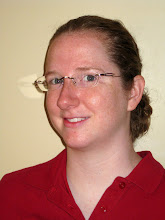Cardinal Tarcisio Bertone, the Vatican Secretary of State, said: “Many psychologists and psychiatrists have demonstrated that there is no relationship between celibacy and paedophilia. But many others have demonstrated, I have been told recently, that there is a relationship between homosexuality and paedophilia. That is true. That is the problem.”This is an outrageous accusation. Not only is it untrue that there is a decisive link between homosexuality and pedophilia, it fails to recognize the statistics. Children are far more likely to be abused by people of heterosexual orientation than by people of homosexual orientation. Furthermore, statements like this one focus attention on potential perpetrators, rather than focusing attention where it belongs: on caring for the victims and survivors of such abuse. I am unaware that either celibacy or homosexuality are directly linked to child sexual abuse. Rather, abuse of any kind is linked to a power and control dynamic in which a person with power (in this case the priest) executes that power by demeaning a person with less power (in this case, children). This power can be exhibited in many ways, one of which is sexual abuse. Statistically speaking, males who abuse children are more likely to be of heterosexual orientation, or as this article asserts, no recognized sexual orientation. Making accusations like this one takes the onus off of the church to help past victims and prevent future occurrences. It is the church's responsibility to do everything in its power to ensure safe space for all of God's people. Pretending that the problem exists solely because of some group that can be blamed and punished does not do anyone any good.
But that's not the end of it! The article continues:
Giacomo Babini, the retired Bishop of Grosseto in Italy, was quoted by an Italian Catholic website as complaining about a Zionist attack on the Church. In an interview he was said to have described Jews as the “natural enemies” of Catholicism. “Deep down, historically speaking, the Jews are deicides [God-killers],” he said.I take exception to anyone who calls Jews 'God-killers' (even excepting that by adding "historically") without recognizing that Christians, too, are God-killers, as are Romans and Africans (remember Simon of Cyrene) and anyone else that may have been present at that public execution. So it is indeed unfair and in fact sinful to label this historical event as a Jewish problem or a Jewish sin. Jesus was not killed because of one person or one religious group. Rather, Jesus was killed because the social structures of the world could not and would not tolerate his preaching, teaching, healing, and living into a different-looking world. Jesus challenged the rules about what is clean and dirty. Jesus challenged the rules about who one can talk to our eat with. Jesus challenged the rules about what it is to be sick or healthy. He challenged the rules about what it means to be living in sin or righteous. And the people with power in that society refused to allow Jesus to change the status-quo. In fact, some of the people without power did the same thing -- trying to join those with power by aligning their opinions and their 'vote' to what those in power would have them say... a vote for crucifixion.
Dare we believe that it would be any different today? If Jesus were to come healing people, would we not call him possessed? If Jesus were to come proclaiming forgiveness of sins, would we not call him psychologically disturbed? If Jesus were to come teaching the homeless, walking through radioactive dumps with children, and sitting to eat with them without first washing his hands, would we not call him dirty and unclean?
No, it is not the Jews who killed Christ. It was us. All of us. Because we could not then and still cannot bear the message that he brought and brings to us: God's kin-dom is not of this world. God's power does not become manifest in violence. God's healing and grace are extended to the world, the whole world... and this grace is realized only when those who have more than enough share with those who have not enough.
I fear that those who have not enough are more aware of God's daily grace even than I am - and I think I look for it! But when every moment of one's life is contingent on God's presence and grace, noticing seems to become a regular part of life. Might God's kin-dom come when we all recognize that every moment of all of our lives are contingent on that presence and grace?
God's kin-dom will only come when we stop blaming our neighbors for the problems of the world, and start recognizing that we have some part in those problems as well. Only when I recognize my failures and sins, and begin to confess, repent and remediate them, will anyone else be willing to do the same. And, when we all reach that point, perhaps God's kin-dom will indeed be present.
